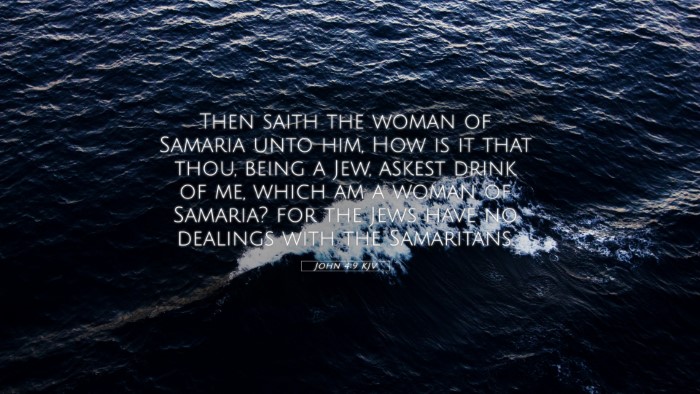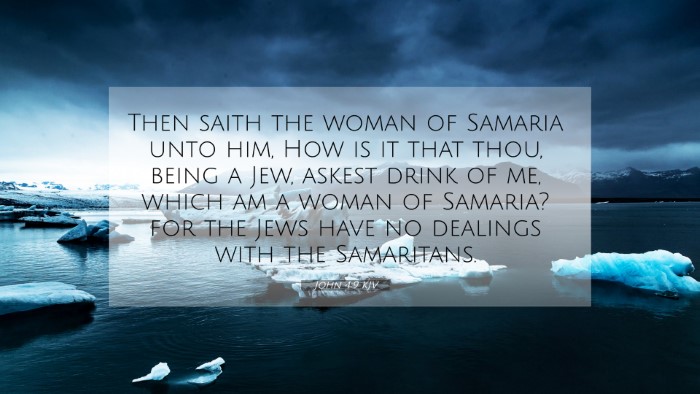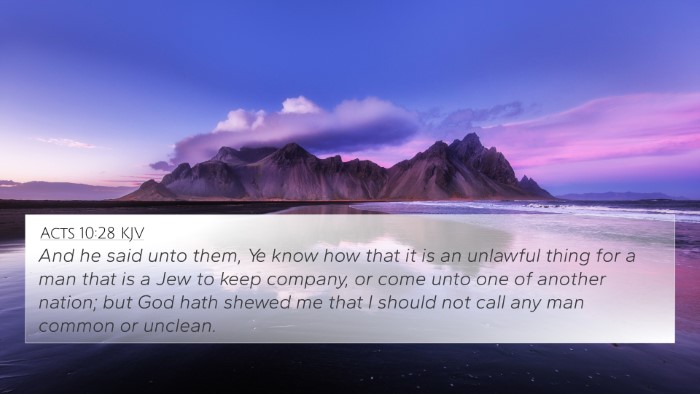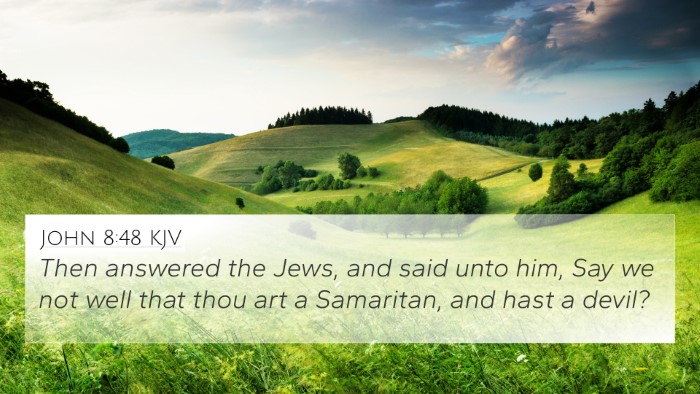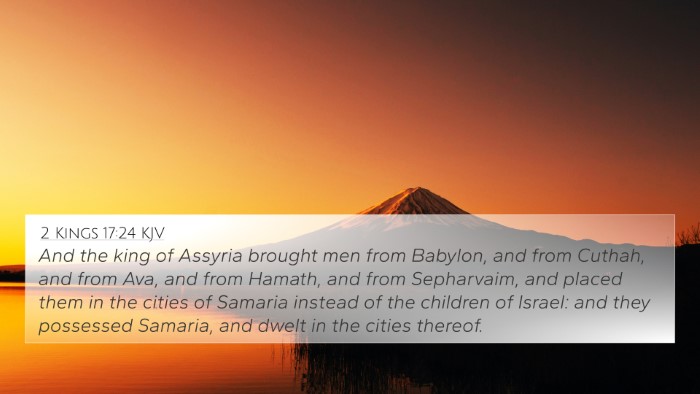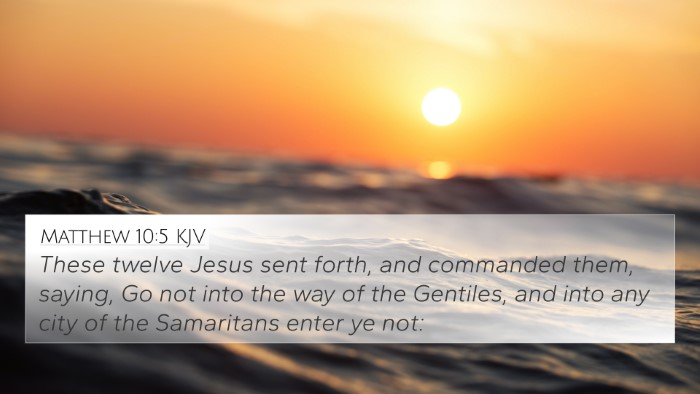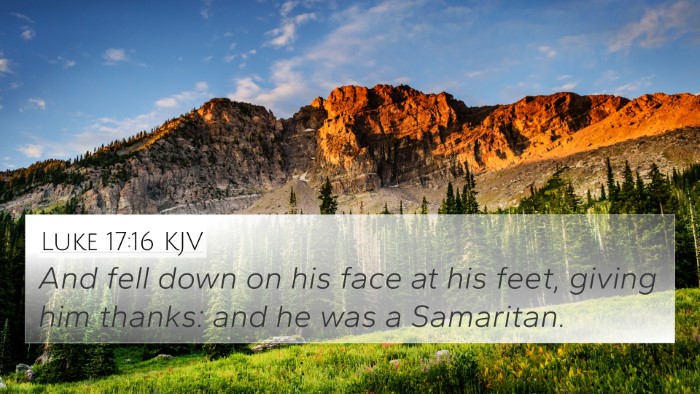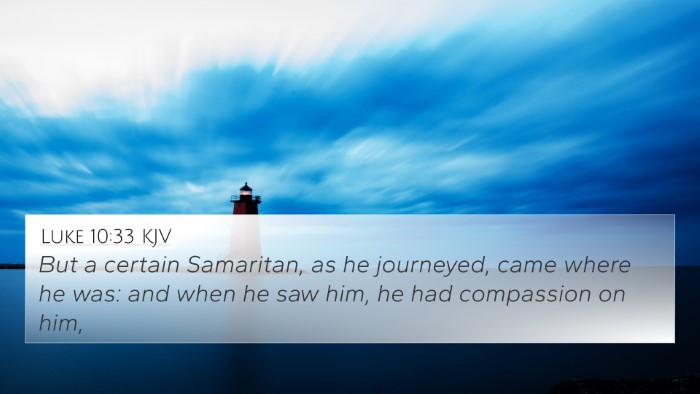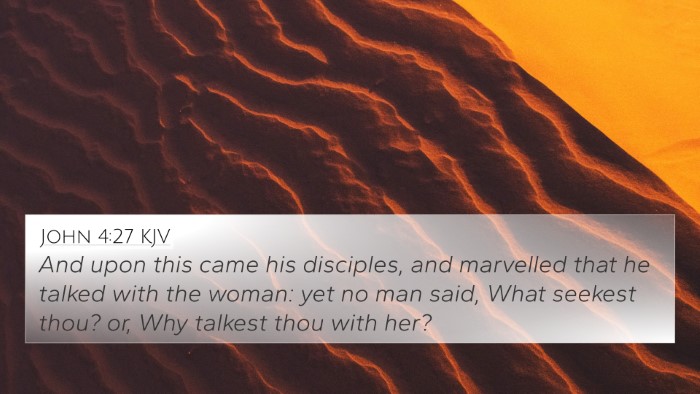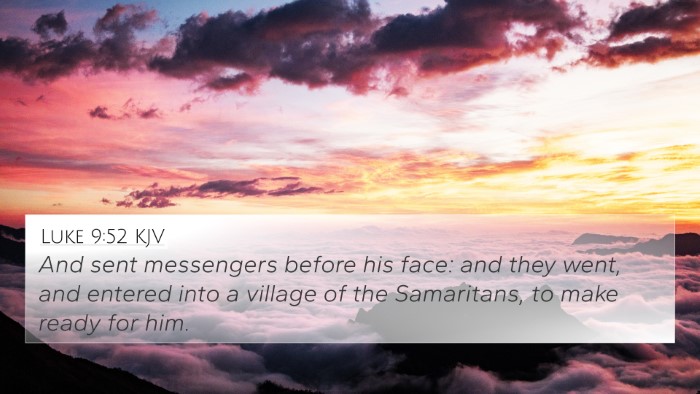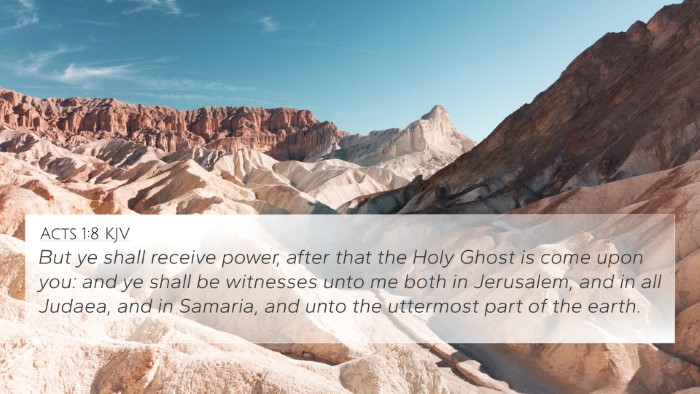Understanding John 4:9
John 4:9 states: "Then the woman of Samaria said to Him, ‘How is it that You, being a Jew, ask a drink from me, a Samaritan woman?’ For Jews have no dealings with Samaritans." This verse entails a significant dialogue that reveals the cultural and religious divides present in the society of that time.
Contextual Analysis
The background of John 4:9 is critical to understanding its implications. Jesus, a Jew, encounters a Samaritan woman at Jacob’s well. The fact that He initiates a conversation by requesting a drink is remarkable. It signifies a break from Jewish customs, particularly the prevailing hostility between Jews and Samaritans.
Verse Meanings through Different Commentaries
-
Matthew Henry:
Henry emphasizes the symbolic nature of the well and notes how the woman’s question highlights her surprise and perhaps confusion at Jesus’ approach. Henry asserts that this encounter is a testimony to Christ’s mission, which transcends social and ethnic boundaries.
-
Albert Barnes:
Barnes focuses on the cultural implications of the request for water. He points out the disdain the Jews had for Samaritans due to historical and religious reasons. This dialogue initiates a crucial theme of acceptance and the breaking down of barriers, central to Jesus’ ministry.
-
Adam Clarke:
Clarke brings attention to the details of the dialogue, drawing insights into the significance of the well itself. He notes that Jesus’ request serves as both a literal need and a metaphorical invitation for deeper spiritual engagement. It foreshadows the eventual teachings about living water.
Thematic Connections and Cross-References
This verse can be connected to several others in the Bible that illuminate similar themes of interaction across cultural divides, grace, and acceptance:
- Luke 10:33-35: The Good Samaritan parable illustrates the importance of love and compassion beyond societal prejudices.
- Galatians 3:28: Paul’s teaching that there is neither Jew nor Gentile emphasizes the equality found in Christ.
- Matthew 28:19: The Great Commission shows Jesus’ intent for His followers to reach all nations, breaking down ethnic barriers.
- John 3:16: This verse encompasses God’s love for the world, reinforcing the overarching theme of inclusivity seen in Jesus’ actions.
- Acts 10:34-35: Peter’s revelation about God not showing favoritism parallels the acceptance themes found in John 4:9.
- Matthew 15:24: Jesus' initial mission to the lost sheep of Israel contrasts with His wider ministry, which opens up to all.
- Ephesians 2:14: This verse speaks about Christ as our peace, reconciling different groups into one body.
Scriptural Cross-Referencing and Thematic Connections
Through John 4:9, we observe the beauty of inter-Biblical dialogue where scriptures enhance our understanding of God’s heart for unity. Cross-referencing Biblical texts, one can discover:
- John 7:35: Another mention of the Samaritan context among the Jews.
- Acts 1:8: An insight into the spread of the Gospel beginning in Jerusalem and extending to Samaria, highlighting the fulfillment of this breaking of barriers initiated in John 4.
- Revelation 7:9: A prophetic vision of a diverse people worshiping God signifies the ultimate vision where all nations gather.
Conclusion: The Importance of Understanding John 4:9
John 4:9 is not only an account of Jesus’ encounter with a Samaritan woman; it is a powerful narrative underscoring the transformative power of Christ’s love, pushing beyond societal norms and establishing themes of hope and inclusion. Understanding this verse through a cross-referenced approach allows for a richer comprehension of its implications, inviting deeper study and reflection on how we, too, are called to break barriers in our communities.

